Japanese cinema is full of all sorts of movies, and the sentiment of Japanese filmmakers is unique, offering a different perspective on life. The dramas tend to be slow-burning features, while the horror and action movies are often bloody and very in-your-face; there are, somehow, very few movies in between those two sentiments, dividing audiences and critics alike.
Still, some of the best Japanese movies of the last ten years are a great and balanced mix of all genres, showing that filmmakers still enjoy crafting great films for both domestic and international audiences. There were even great features by cinema legends like Takashi Miike and Kiyoshi Kurosawa, and they made it to the list, too. For fans of Japanese cinema and newcomers to that world, the best movies of the past decade should have something for everyone.
11
‘First Love’ (2019)
Directed by Takashi Miike
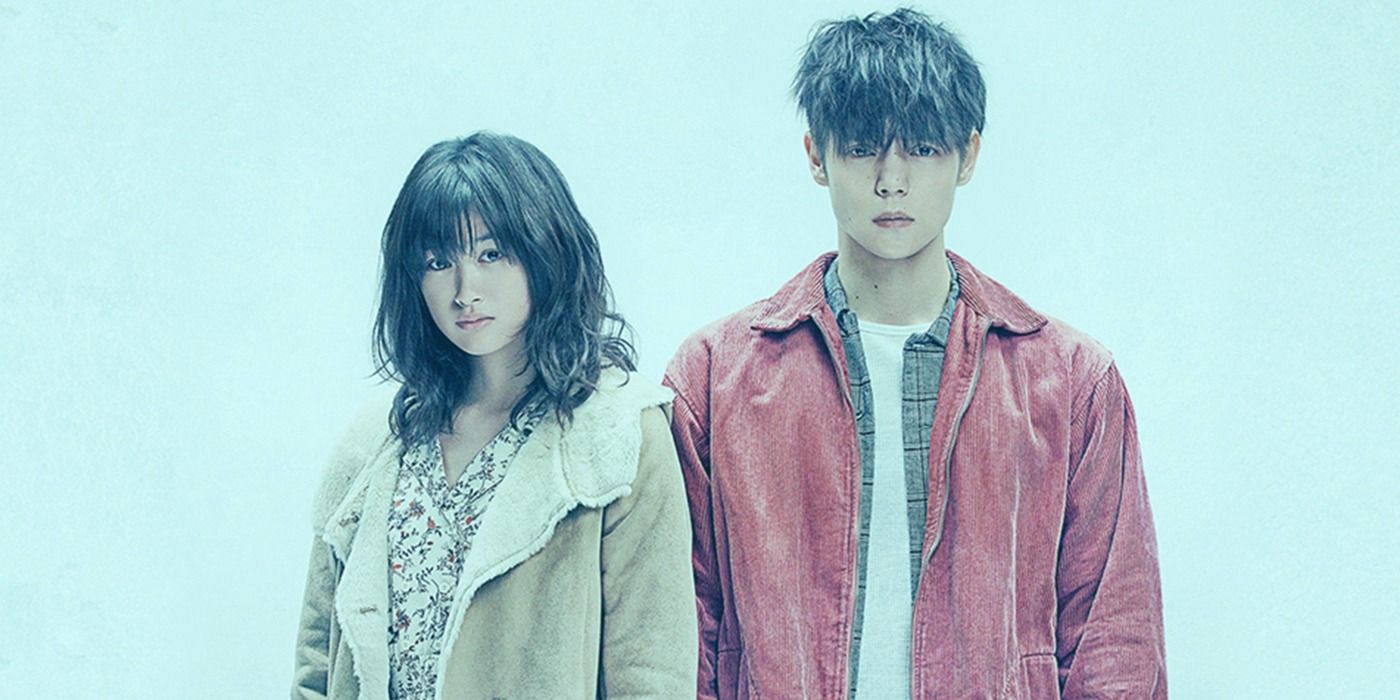
Image via Toei Company
Takashi Miike is a legend of Japanese cinema. If you’ve heard of Ichi the Killer, Audition, or Crows Zero, you’ve definitely heard of Miike in one way or another. Miike’s filmography isn’t just vast but varied, too. His work ranges from action comedies to deeply disturbing horror, and they’re all relevant to his work, which he often says comes from the heart. First Love is one of his more recent films, an exciting blend of action, comedy, and romance.
First Love follows the up-and-coming boxer, Leo (Masataka Kubota), and the call-girl Yuri, aka Monica (Sakurako Konishi). They have a chance encounter one night when Yuri runs away from a yakuza member, Kase (Shota Sometani), and the crooked cop, Otomo (Nao Omori). Leo decides to help Monica, and they go on the run from the yakuza together. First Love is actually kind of a sweet romance, paired with some bloody violence and gore that often gets funny; fans of great action movies will love First Love.
10
‘The Blood of Wolves’ (2018)
Directed by Kazuya Shiraishi

Image via Toei
If you want a bit of a throwback to the 1980s and a stellar yakuza/cop movie, look no further than The Blood of Wolves, starring Kōji Yakusho. This crime thriller is an excellent addition to the yakuza genre. Inspired by Cops vs Thugs, Kinji Fukasaku’s relentless yakuza flick starring Bunta Sugawara, The Blood of Wolves is an homage to the genre and the most active and fruitful period for it. It also has a sequel, The Last of the Wolves, made in 2021.
The Blood of Wolves is set in Hiroshima, Japan, in 1988. It follows detective Shūichi Hioka (Tori Matsuzaka) being assigned to the investigative unit run by Shōgo Ōgami (Yakusho). The rumor is that Ōgami is connected to the Hiroshima mob, and when they get assigned to a missing person’s case, Hioka becomes increasingly suspicious. The movie is quite tense and has elements of film noir; if you like crime movies with such elements and homages to Fukasaku, you’ll likely enjoy this thrilling piece.
9
‘Creepy’ (2016)
Directed by Kiyoshi Kurosawa
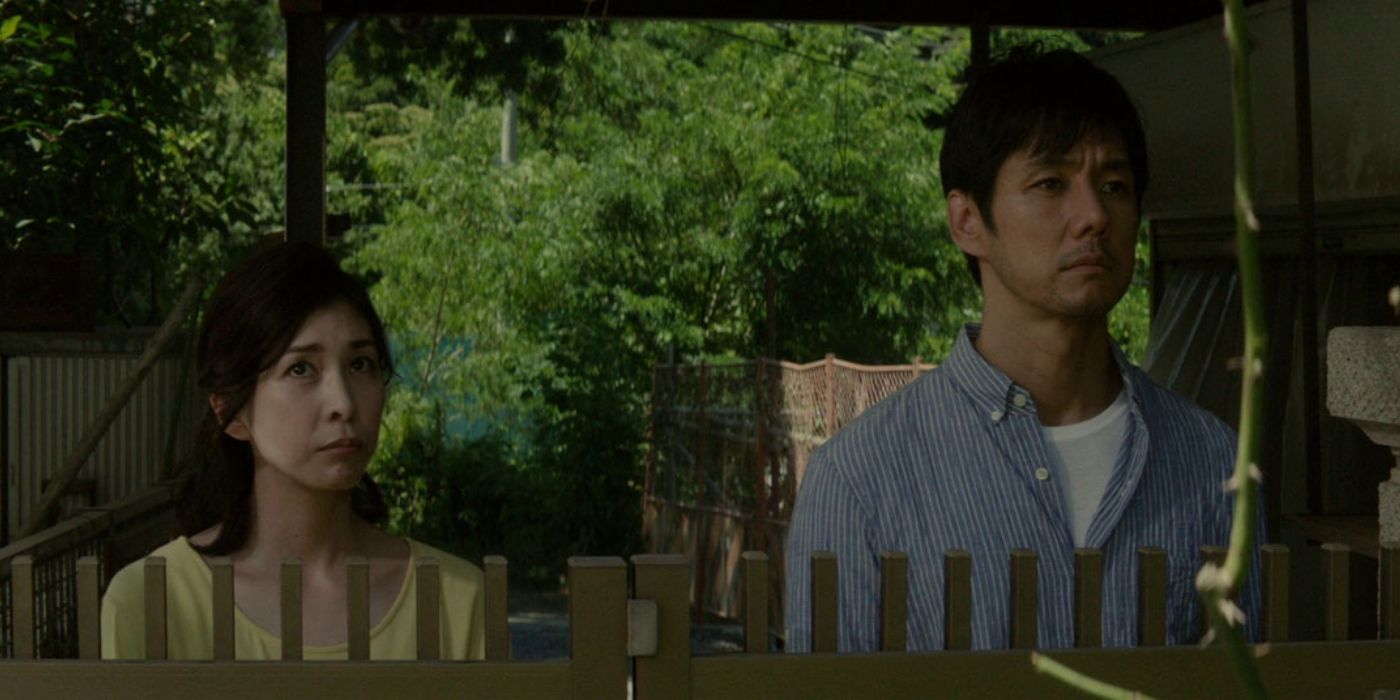
Image via Shochiku
Another legend of Japanese cinema, Kiyoshi Kurosawa, brought us Cure and Pulse, two of the scariest J-horror movies of all time. Creepy follows a similar sentiment in which the psyche becomes the scariest part and the biggest threat. The movie is laced with an unease and tension that’s hard to shake even after finishing it. Kurosawa succeeds in creating an eerie atmosphere just by showing what’s not there; the anticipation in each of those frames can’t prepare us for what actually comes in the shocking plot twist.
Creepy is laced with an unease and tension that’s hard to shake even after finishing it.
Creepy follows married couple Koichi (Hidetoshi Nishijima) and Yasuko (Yūko Takeuchi), who move to a new neighborhood after Koichi resigns from his job as a criminal profiler and gets a university tenure as a criminal psychology professor. Yasuko is often left alone, and she frequently encounters the neighbor that gives her uneasy feelings, Masayuki Nishino (Teruyuki Kagawa). The acting is superb in the film, and the story itself is quite tough to digest, but it is still a great psychological thriller and among the best Japanese movies of the last decade.
8
‘One Cut of the Dead’ (2017)
Directed by Shinichirou Ueda
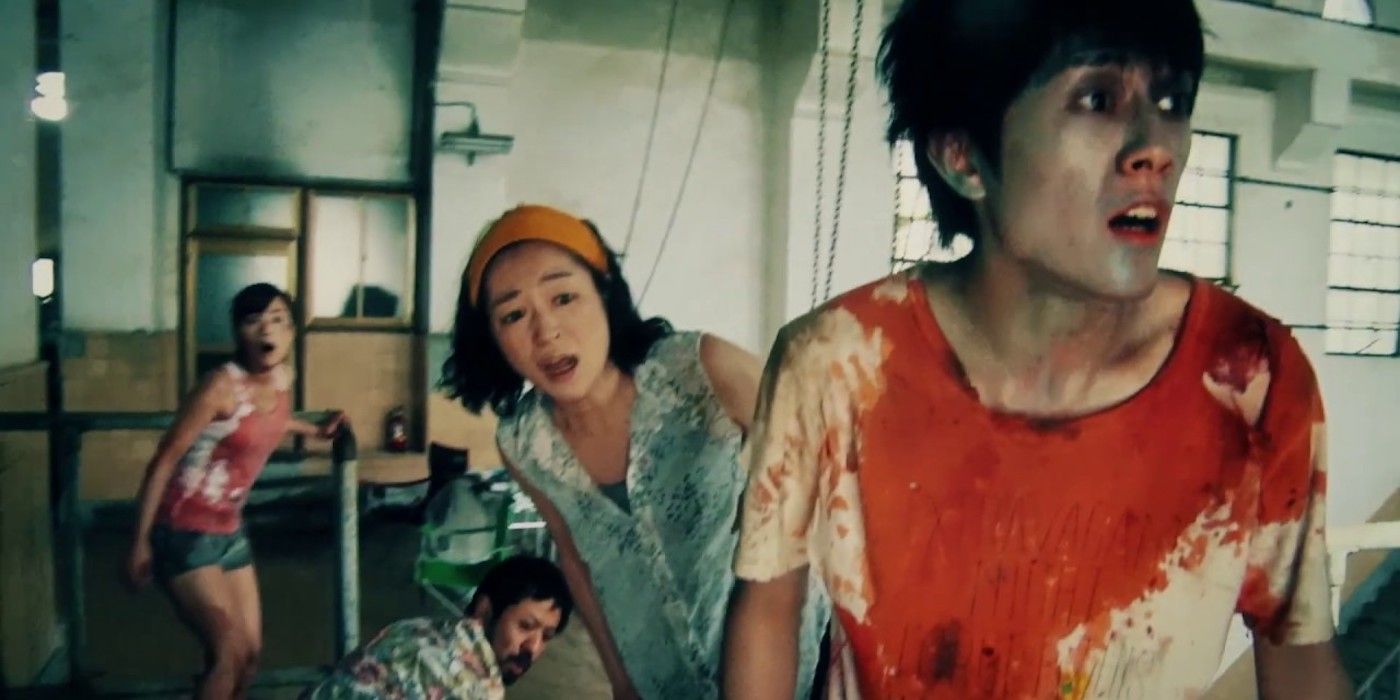
Image Via Shudder
The zombie comedy One Cut of the Dead was an unexpected hit. People found it to be a lot more enjoyable than expected, making its way into the top ten of the best Japanese movies of the past decade. Fans of zombie horror found the movie refreshing in its non-linear and immersive storytelling, but also in its special effects, which weren’t made on a large budget. As Miike would say, “Don’t cry over missing funds and resources. Get creative.” This sleeper hit also offers a meta-commentary on filmmaking.
One Cut of the Dead follows a film crew shooting a low-budget zombie movie in an abandoned water facility when they get attacked by real zombies. This plot is just one small part of the movie, which is thematically divided into three parts. The events that follow the attack lead to some unexpected and quite humorous twists, making One Cut of the Dead feel fresh during its fairly short runtime (1h 36m). The fun fact here is that the movie was made for around $25,000 and earned over $30 million globally and almost that domestically.
7
‘Happy Hour’ (2015)
Directed by Ryusuke Hamaguchi

Image via Kobe Workshop Cinema Project
Ryusuke Hamaguchi is currently one of the most appreciated Japanese directors, on par with Hirokazu Kore-eda. Both are able to question, depict, and analyze the human condition in very vulnerable ways; Happy Hour is a great example of Hamaguchi’s skill. This intimate drama is an exploration of friendship and personal transformation, following four women friends who are going through different stages of relationships privately and interpersonally.
Happy Hour is about four women situated in Kobe, all in their late 30s, and longtime friends: the housewife, Sakurako (Hazuki Kikuchi); arts administrator Fumi (Maiko Mihara); nurse Akari (Sachie Tanaka); and Jun (Rira Kawamura), who is amid a divorce from her current husband. The movie follows their relationships and the roles each woman takes in them, following each story through the perspective of friendship. A great fact about Happy Hour is that the four actresses shared the Best Actress award at the 2015 Locarno Film Festival, highlighting their collective performance. It’s also one of the longest movies in Japanese cinema, sitting neatly at around 317 minutes.

Happy Hour
Release Date
December 12, 2015
Runtime
317 minutes
Director
Ryūsuke Hamaguchi
6
‘The Boy and the Heron’ (2023)
Directed by Hayao Miyazaki
There’s not enough praise for Studio Ghibli and all of Hayao Miyazaki’s creations, but The Boy and the Heron is special because it marks his return to filmmaking after about ten years. Well, technically, Miyazaki announced his retirement in 2013 but made a short film in 2016 and started working on The Boy and the Heron right after that; to audiences, it seems like 10 years, but Miyazaki may not have felt the time pass at all. The Boy and the Heron has autobiographical elements and stands as one of the most important Miyazaki films; it won the Oscar for Best Animated Feature in 2024.
The Boy and the Heron is about a young boy, Mahito Maki, who loses his mother in the bombing of Tokyo during the Pacific War. Mahito’s father remarries his wife’s sister, and the family moves away to the countryside to evade the war devastation. While investigating his surroundings, Mahito encounters a talking grey heron, who takes him on adventures through a fantastical world. Escapism amid tragedy is common in animated films, especially Miyazaki’s, but this one may be closest to home for him. It’s a touching tribute to boyhood and mothers and a gentle coming-of-age story everyone should see at least once.
5
‘Godzilla Minus One’ (2023)
Directed by Takashi Yamazaki
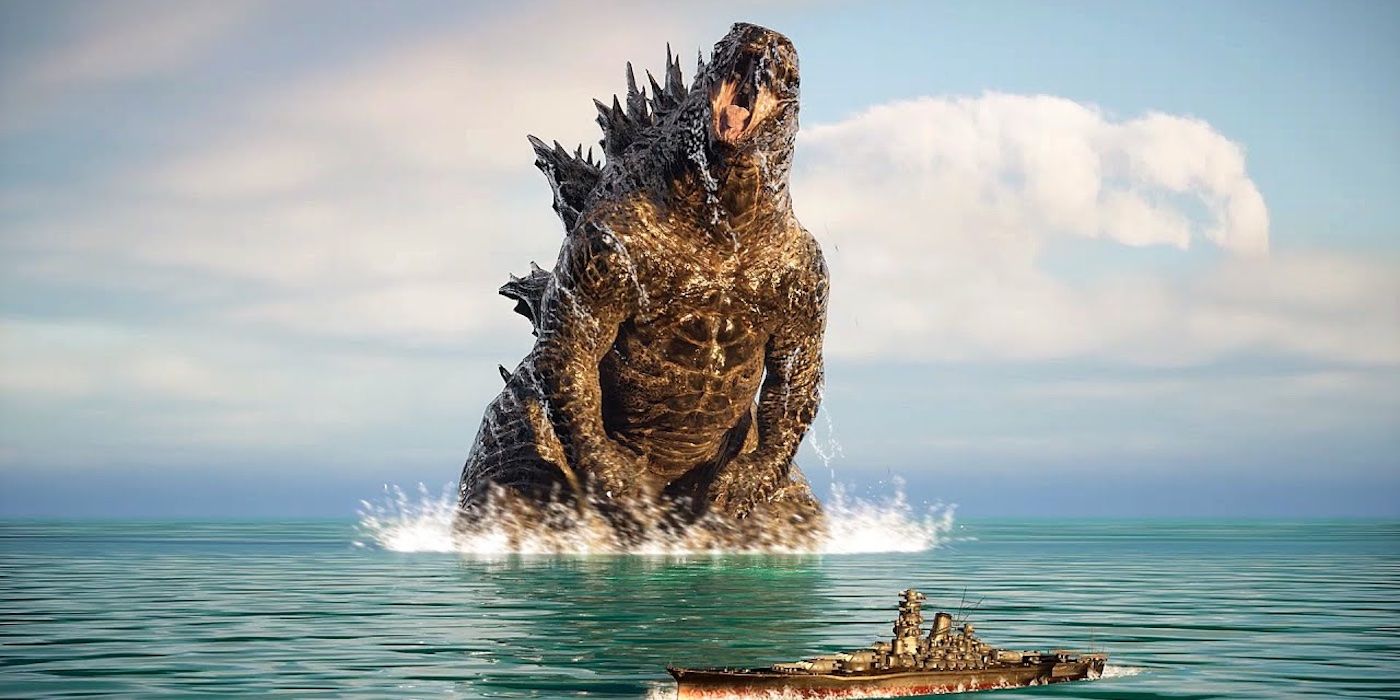
Image via Toho
After the first Godzilla from 1954, it’s tough to say which movie came close to being as good as that one. Some 70 years later, Godzilla Minus One takes the stage and shines as brightly as the first major Kaiju motion picture. Reviving the Godzilla franchise from the Japanese perspective gives the movie a fresh narrative and uses impressive visual effects. It’s also one of the Godzilla movies in which you actually find yourself cheering for the people and not the monster. Godzilla Minus One received widespread critical and audience approval and became the highest-grossing Godzilla movie made in Japan.
Godzilla Minus One is set in post-war Japan and follows the former kamikaze pilot Kōichi Shikishima (Ryunosuke Kamiki) settling in Tokyo after encountering a massive sea monster on Odo Island, where he crashed his plane and survived. In Tokyo, Shikishima, suffering from PTSD, finds a woman and a child and takes them in, starting a family with them. As life unfolds, Godzilla grows stronger due to nuclear tests on Bikini Atoll; the threat approaches Tokyo, slowly but surely. Godzilla Minus One is exciting and a great monster movie.
4
‘Monster’ (2023)
Directed by Hirokazu Kore-eda

Image via Toho
As mentioned, Hirokazu Kore-eda is one of the most popular Japanese directors at the moment, delivering complex human themes in very emotional and gripping ways. His movies could be classified as emotionally heavy slow-burns, and in Monster, he tackles the complexities of bullying and childhood friendships in a masterfully directed way. The movie received widespread acclaim from critics, audiences, and even festivals, winning Best Screenplay at the 76th Cannes Film Festival.
Monster is about a single mother, Saori (Sakura Andō), raising her young son, Minato (Sōya Kurokawa). Minato is a fifth-grader, and one day begins exhibiting strange behavior, including becoming isolated and forgetful, losing his shoes, and even cutting his hair. Saori confronts Minato’s teacher, Hori (Eita Nagayama), but Hori denies any involvement in Minato’s transformation. The story then takes multiple perspectives and introduces further complexities that can’t be deemed as just black or white. It’s possible that each Kore-eda movie might leave you perplexed and depressed, but that’s the beauty of his work — life in its rawest and most complicated form.
3
‘Your Name’ (2016)
Directed by Makoto Shinkai
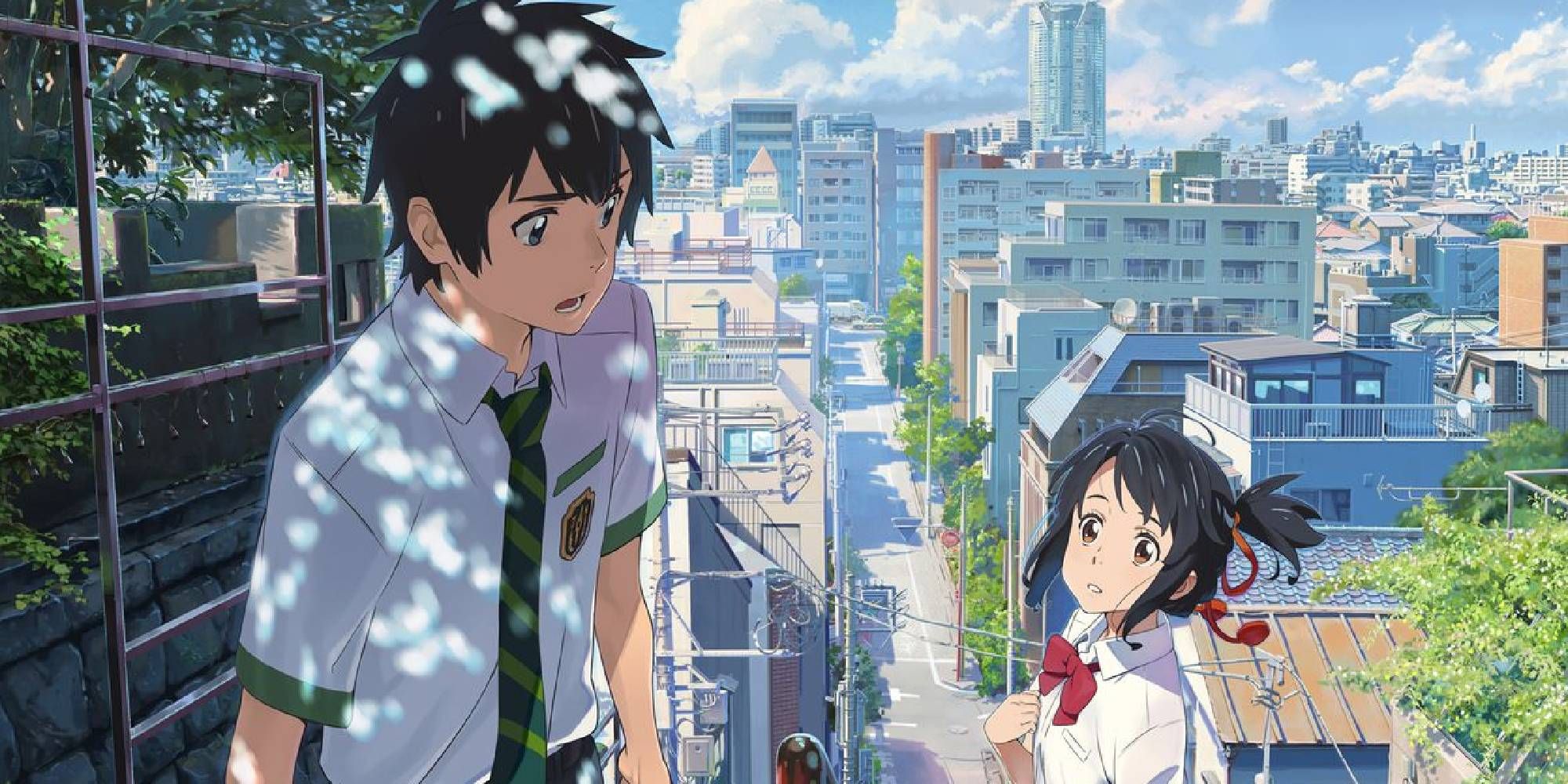
Image via Toho
The anime feature Your Name was renowned for its breathtaking animation and emotional depth, becoming a cultural phenomenon both in Japan and internationally. Makoto Shinkai’s sci-fi drama/romance became the highest-grossing anime film worldwide upon its release, holding that title until 2020; regardless of box office success, Your Name is still cited among the most influential and greatest anime movies of all time. Shinkai, interestingly, didn’t feel the movie was as good as he wanted it to be, feeling strong reservations against it. The Japanese perfectionist attitude shines through Shinkai, who, hopefully, later accepted that Your Name is great as is.
Your Name is a time-traveling romance about two high schoolers, Taki and Mitsuha, who swap bodies after country girl Mitsuha wishes to be a Tokyo boy in her next life. As the two learn while inhabiting each other’s bodies, a romance develops, and their cosmic connection goes further. This brilliant movie will make you think, laugh, and cry; it’s the perfect formula for a night in, regardless of what Shinkai says.
2
‘Shoplifters’ (2018)
Directed by Hirokazu Kore-eda
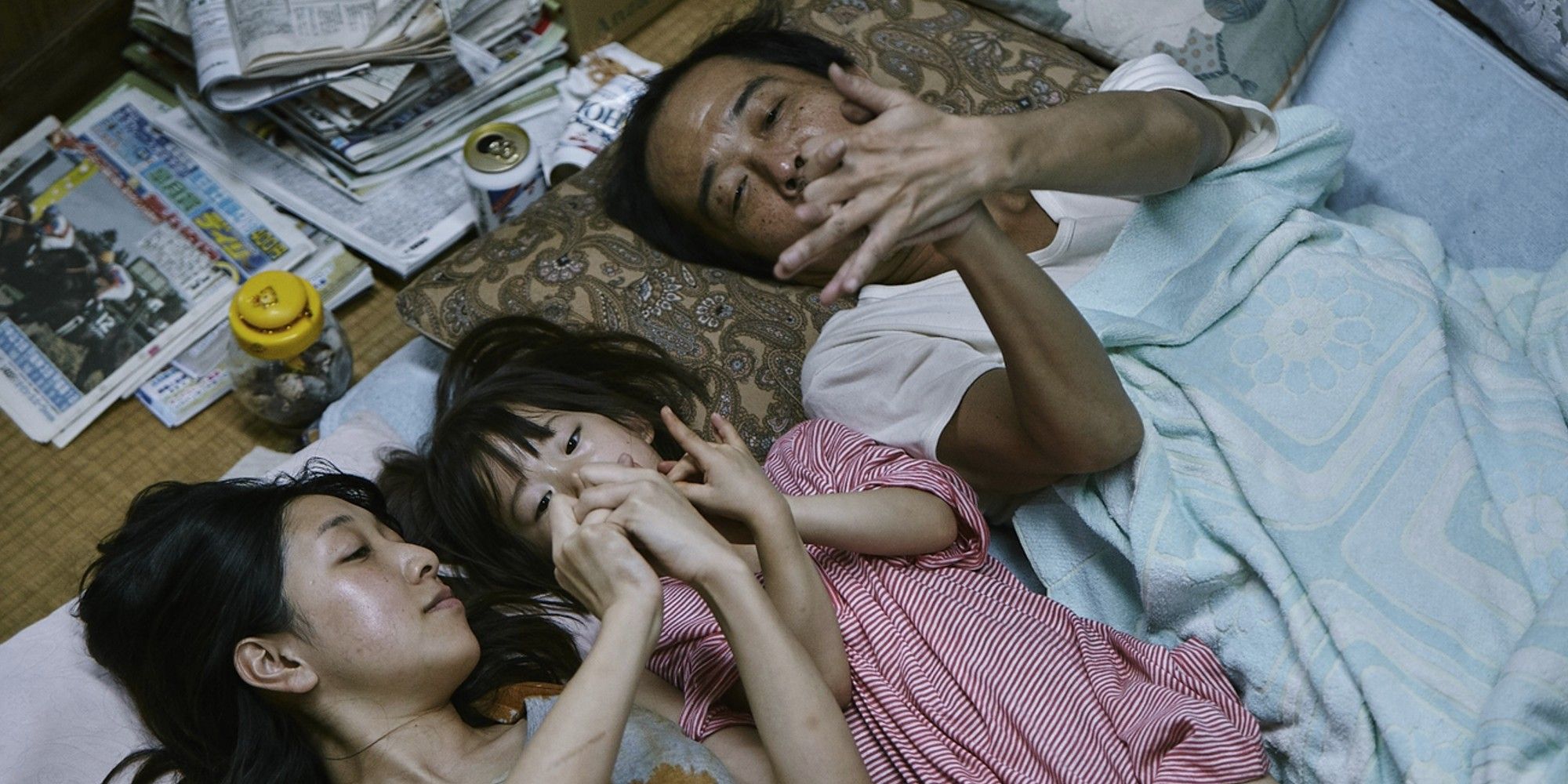
Image via Gaga Corporation
The first Kore-eda film that gained international attention was Shoplifters, a Best Foreign Language Film nominee at the 91st Oscars. It didn’t win the Oscar, but it won the Palme d’Or at Cannes. As with other Kore-eda originals, Shoplifters is a powerful drama, this time about a multi-generational family; it’s also a deep examination of societal issues affecting the family, which relies on shoplifting to sustain itself. Think of Yasujiro Ozu’s Tokyo Story, but modernized and depressingly placed in the claws of capitalism.
Shoplifters follows the multi-generational Shibata family living in one home, where Hatsue (Kirin Kiki) is the elder that supports the family with her late husband’s pension. The story follows the family shoplift and take advantage of loopholes to avoid taxes and fees, showcasing how poverty makes people act and think. In some ways, it’s similar to Parasite, which came out a year later; both movies take tragic turns that make the poor families ultimately suffer for their efforts at survival. This doesn’t necessarily mean that Shoplifters and Parasite want to condemn petty crimes, but that life is often unfair, and it’s most unfair to the most disadvantaged of us.
1
‘Drive My Car’ (2021)
Directed by Ryusuke Hamaguchi
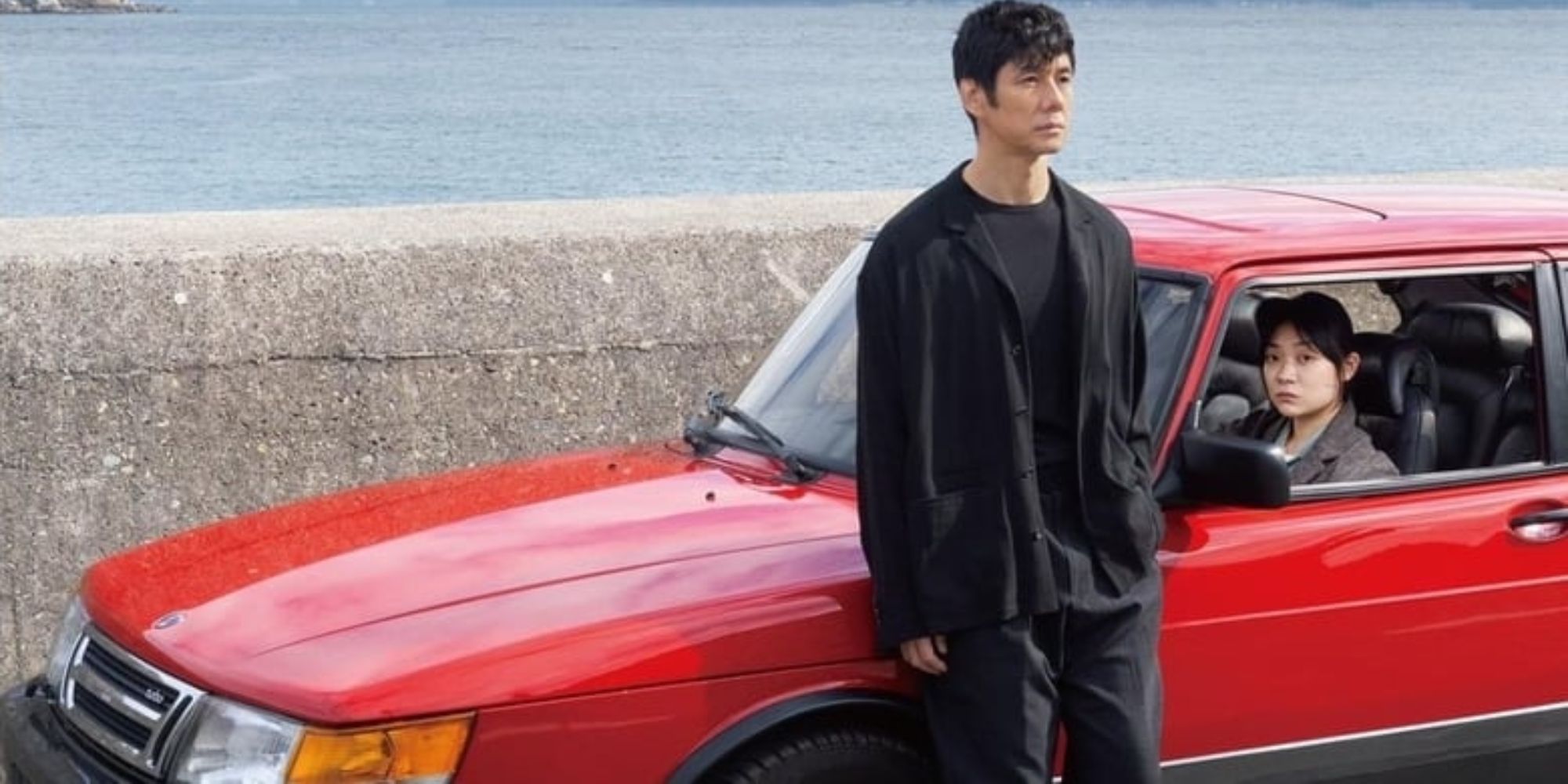
Image via Bitters End
Potentially the most famous Japanese Oscar nominee (and winner), Hamaguchi’s Drive My Car is a profound exploration of human connections and emotions, something — as mentioned — common to all Hamaguchi features. With Drive My Car, the central themes are grief and coping and how connecting with others helps soothe wounds rather than deepen them. It balances isolation and socialization perfectly, blended with stunningly emotional visuals and a linear, simple storyline that doesn’t need embellishment. Sure, life is all around us and such stories are at the touch of our fingertips, but Drive My Car reminds people of the humanity they sometimes forget they hold.
Drive My Car is about the theater director and actor Yūsuke Kafuku (Hidetoshi Nishijima), whose wife dies unexpectedly. Two years after her early death, Yūsuke is asked to direct a multilingual production of Uncle Vanya in Hiroshima. For safety purposes, the theater that books him hires a driver for his beloved car, the young girl, Misaki (Tōko Miura). The two form an unexpected bond after sharing their grief with each other. In a very simplified way, Drive My Car feels like the saying, “Shared sorrow is halved, shared joy is doubled.”
NEXT: The 10 Best Japanese Movies of the 2020s So Far, Ranked


AloJapan.com